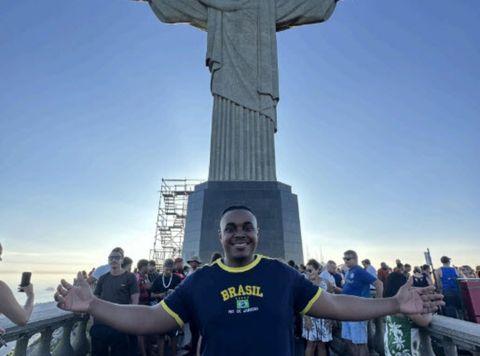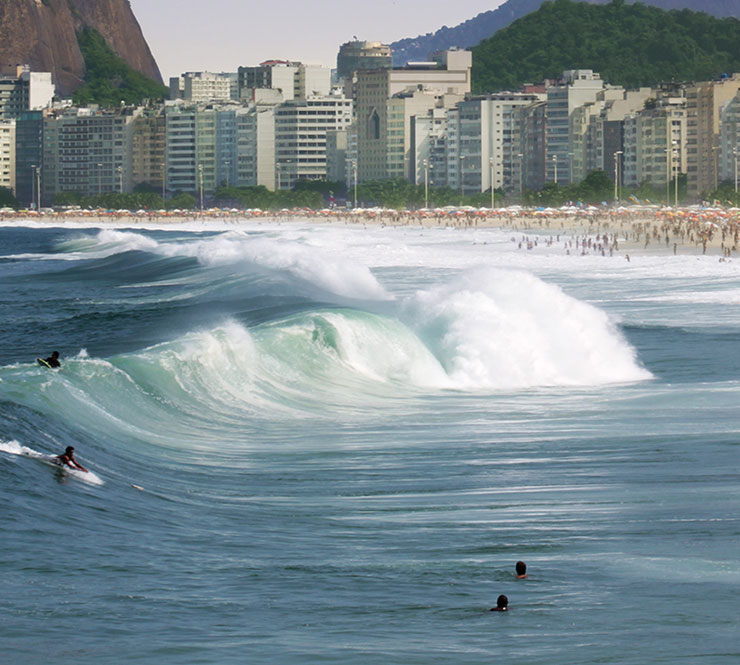COURSE DETAIL
Two (week-long) sessions of intermediate Portuguese language instruction bookend the summer seminars. Instruction emphasizes the development of intermediate Portuguese language structures, as well as oral and written practice.
COURSE DETAIL
The objectives of this course are:
- Conduct a theoretical and practical study of contemporary stage languages, based on the concepts of theatricality and performativity and the dialogue with other artistic languages.
- Expand the ability to perceive the expressive and descriptive elements that make up the stage, through practical experimentation with the relationship between these elements in the body and space.
- Discuss the different theoretical views of the stage, from the modern advent of staging to the break with the canons of Eurocentric Western art, undertaken through decolonial theatrical experiences.
- Analyze the creative processes, stage creation methods, and aesthetic proposals of artists from the contemporary Brazilian stage, critically reflecting on different conceptions of theatrical and performative scenes.
- Encourage the creation of scenes that point to new possibilities for artistic dialogue with the contemporary world.
- Develop practical stage work based on the materiality of the elements that make up the space-time of the stage and their relationships.
This course uses case studies, theoretical readings, discussions, and seminars. Students participate in stage writing work based on the reinterprettation of textual materials selected from various sources and with a common theme.
COURSE DETAIL
This course explores the origins, contemporary manifestations, strategies, impacts, and responses to extremism in Europe and the Americas, with a focus on right-wing examples. It examines the political, social, and cultural dimensions of these movements. The course also distinguishes extremism from related phenomena such as populism and nationalism, explores the motivations and ideologies behind extremism, and assesses the consequences for democracy and social cohesion in these regions. The course begins with a brief introduction to the definitions and distinctions surrounding extremism. In Section II, it takes a closer look at how extremism has developed in contemporary European and American contexts. Section III focuses on analyzing extremist ideologies and discourses, including propaganda and online strategies, through various case studies. Finally, in Section IV, it reflects on the social and political impacts of extremism, as well as the responses from governments and civil society. In terms of methodology, the course is taught through lectures, cross-sectional analysis, group discussions, and the use of primary and secondary sources alongside case studies.
COURSE DETAIL
The Directing Actors course explores the well-known research fields of performance, gender, and star studies, in order to understand how a relationship between people, mediated by a camera, in different positions, is realized, adopting equally distinct procedures to achieve previously prepared results. Within this perspective, the aim is not to adopt a single method, sufficiently capable of encompassing countless possibilities, but to recognize the breadth of paths and tools available to direct people with significant, none, or insufficient professional experience.
COURSE DETAIL
The course addresses a selected collection of themes that are crucial for the creation and development of a startup, among which one can find group behavior and performance, leadership, motivation, and interpersonal influence, storytelling, gamification and design thinking. Through a series of interactive classes, lectures and exercises, students develop competencies in organizational design, human resources management, leadership, and organizational behavior in the context of an internal or external new venture.
COURSE DETAIL
This course is an opportunity to watch, discuss, understand, evaluate, and develop audiovisual narratives around brands. This course entices students to amplify their vision of the advertising film industry, its history, current best practices, and new challenges. From the 30/60-seconds-ads to the social media video content, students work on the storytelling behind campaigns and have the opportunity to produce audiovisual ads for clients chosen by the students. This course covers advertising and cinematographic language; creation, production and evaluations of advertising films; format and content transformations along history; and current audiovisual advertising practices.
COURSE DETAIL
The course looks at the different facets of international conflict mediation, with an emphasis on the treatment of armed conflict. In the first part of the course, the course locates the debate on mediation within the scope of Peace and Conflict Studies, especially on the concepts of conflict management, resolution, and transformation; as well as the concepts of peacekeeping, peacemaking, and peacebuilding. The course highlights the particularities of mediation in relation to other mechanisms for the peaceful resolution of disputes, in particular negotiation, exploring the construction of the debate on mediation in the Conflict Resolution literature and its main associated concepts. From this movement, the course covers what mediation is; who are the people or organizations who act as mediators; when mediation should be introduced to deal with conflicts; and how, and through which mechanisms and tools, mediation is exercised. As an important part of this debate, the course discusses the creation and consolidation of norms around mediation at the international level, particularly in the context of UN and regional organizations. In the second part of the course, students study cases, themes, and state-of-the-art discussions on international mediation, including, for example, the mediation of ceasefires and DDR processes; local knowledge and methods of mediation, decolonial critiques and voices from the Global South; debates on international mediation, gender, and race; and mediation in cases of conflicts and environmental crimes. The classes are structured in two parts: in the first half, debates on theoretical and conceptual issues based on the selected bibliography; in the second part, seeking to understand the content of the first part of the class in the light of activities anchored in practical cases, official documents, peace agreements, technical publications from organizations and research centers dedicated to mediation, etc.
Pagination
- Page 1
- Next page



